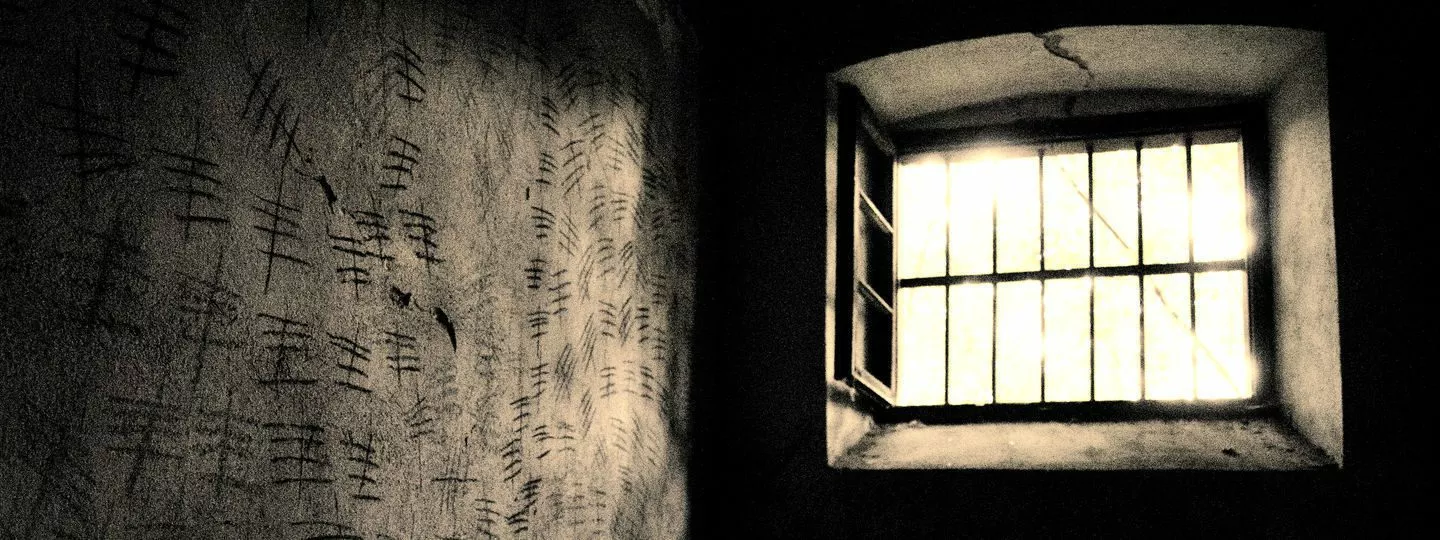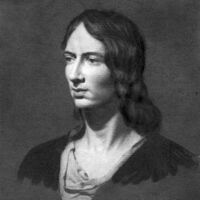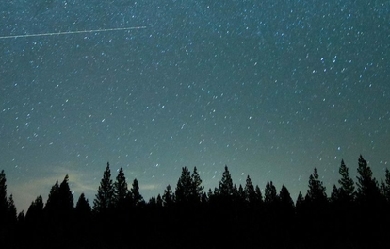
In the dungeon-crypts, idly did I stray,
Reckless of the lives wasting there away;
“Draw the ponderous bars! open, Warder stern!”
He dared not say me nay —the hinges harshly turn.
“Our guests are darkly lodged,” I whisper’d, gazing through
The vault, whose grated eye showed heaven more grey than blue;
(This was when glad spring laughed in awaking pride;)
“Aye, darkly lodged enough!” returned my sullen guide.
Then, God forgive my youth; forgive my careless tongue;
I scoffed, as the chill chains on the damp flag—stones rung:
“Confined in triple walls, art thou so much to fear,
That we must bind thee down and clench thy fetters here?”
The captive raised her face, it was as soft and mild
As sculpted marble saint, or slumbering unwean’d child;
It was so soft and mild, it was so sweet and fair,
Pain could not trace a line, nor grief a shadow there!
The captive raised her hand and pressed it to her brow;
“I have been struck,” she said, “and I am suffering now;
Yet these are little worth, your bolts and irons strong,
And, were they forged in steel, they could not hold me long.”
Hoarse laughed the jailor grim: “Shall I be won to hear;
Dost think, fond, dreaming wretch, that I shall grant thy prayer?
Or, better still, wilt melt my master’s heart with groans?
Ah! sooner might the sun thaw down these granite stones.
“My master’s voice is low, his aspect bland and kind,
But hard as hardest flint, the soul that lurks behind;
And I am rough and rude, yet not more rough to see
Than is the hidden ghost that has its home in me.”
About her lips there played a smile of almost scorn,
“My friend,” she gently said, “you have not heard me mourn;
When you my kindred’s lives, my lost life, can restore,
Then I may weep and sue, —but never, friend, before!
Still, let my tyrants know, I am not doom’d to wear
Year after year in gloom, and desolate despair;
A messenger of Hope, comes every night to me,
And offers for short life, eternal liberty.
He comes with western winds, with evening’s wandering airs,
With that clear dusk of heaven that brings the thickest stars.
Winds take a pensive tone, and stars a tender fire,
And visions rise, and change, that kill me with desire.
Desire for nothing known in my maturer years,
When Joy grew mad with awe, at counting future tears.
When, if my spirit’s sky was full of flashes warm,
I knew not whence they came, from sun, or thunder storm.
But, first, a hush of peace —a soundless calm descends;
The struggle of distress, and fierce impatience ends.
Mute music soothes my breast, unuttered harmony,
That I could never dream, till Earth was lost to me.
Then dawns the Invisible; the Unseen its truth reveals;
My outward sense is gone, my inward essence feels:
Its wings are almost free– its home, its harbour found,
Measuring the gulph, it stoops, and dares the final bound.
Oh, dreadful is the check –intense the agony—
When the ear begins to hear, and the eye begins to see;
When the pulse begins to throb, the brain to think again,
The soul to feel the flesh, and the flesh to feel the chain.
Yet I would lose no sting, would wish no torture less;
The more that anguish racks, the earlier it will bless;
And robed in fires of hell, or bright with heavenly shine,
If it but herald death, the vision is divine!”
She ceased to speak, and we, unanswering, turned to go—
We had no further power to work the captive woe:
Her cheek, her gleaming eye, declared that man had given
A sentence, unapproved, and overruled by Heaven.




